A well-kept secret: Moldovans make San Francisco trolleys safer
February 12, 2024
A small Moldovan factory has a broad scope in the world of trolleybuses. Its story began amid bleak years.
Imagine riding home from work on a packed trolley bus. It's peak hour, and most people use trolleys in this city. Tired women carrying shopping bags and men smelling of cigarettes are swaying in the same rhythm as the vehicle rolls on, squealing and shrieking along the way.
Suddenly, all the city's trolleys stop. Being used to power cuts, you scoff and jump off the trolley. It's going to be a long walk home.
This is what life in the capital of Moldova, Chisinau, was like in the early 2000s.
Electricity was expensive and scarce, and the country needed help to keep up with the load.
After the collapse of the Soviet Union, high inflation led to the increase of prices for energy resources, according to the IOM 2001 report. Most electricity was generated in a break-away, Russia-controlled region, Transnistria. There were constant negotiations over the prices of electricity.
That all led to poor transportation.
But Moldova had a trick up its sleeve - they knew how to build and fix things.
Soviet electronics powerhouse
These days, Moldova is commonly known as an agrarian state. Its lush fields are vital to Moldova's economy. But things used to be different only a few decades ago. Local engineers made televisions, digital integrated circuits, and military systems for submarines, among many other products, according to Elena Maevski, project coordinator at The Association of Electronics Companies in Moldova (ACEM).
Moldova was the third largest supplier of electronic equipment among the socialist republics, according to ACEM.
Electronics brought the most revenue to the state budget when Moldova was part of the Soviet Union, Ion Bostan, a former Technical University of Moldova rector, has shown. He wrote a book “Engineering Sciences and the Cooperation with Industry in the Republic of Moldova” that revealed many secrets about this industry.
Bostan showed how the electronics created throughout Moldova - but ordered by Moscow - helped control, manage, and monitor military equipment.

In the 90s, when the Soviet Union collapsed and, with it, Moldovan companies lost their old market. The budget for education and sciences dropped in independent Moldova, which was struggling economically.
But the expertise remained. Some 20 years later, the companies and engineers are slowly surfacing again. The company Moldavizolit produces pcb laminates and other materials for the electronics industry. Electromash makes generators and electric motors for coal, nuclear, and other industries.
Their leaders are starting to speak about their work for the first time. Vitalie Eșanu, a legendary engineer and a professor at the Technical University of Moldova, is one of them. He is the founder and CEO of Informbusiness.
The city is looking for a solution
Back to those gloomy days when the whole city would stop at peak hours in the early 2000s. Chisinau turned to Eșanu to make trolleys more energy-efficient for the city. This was the beginning of a journey that led to the invention of world-class electronics.
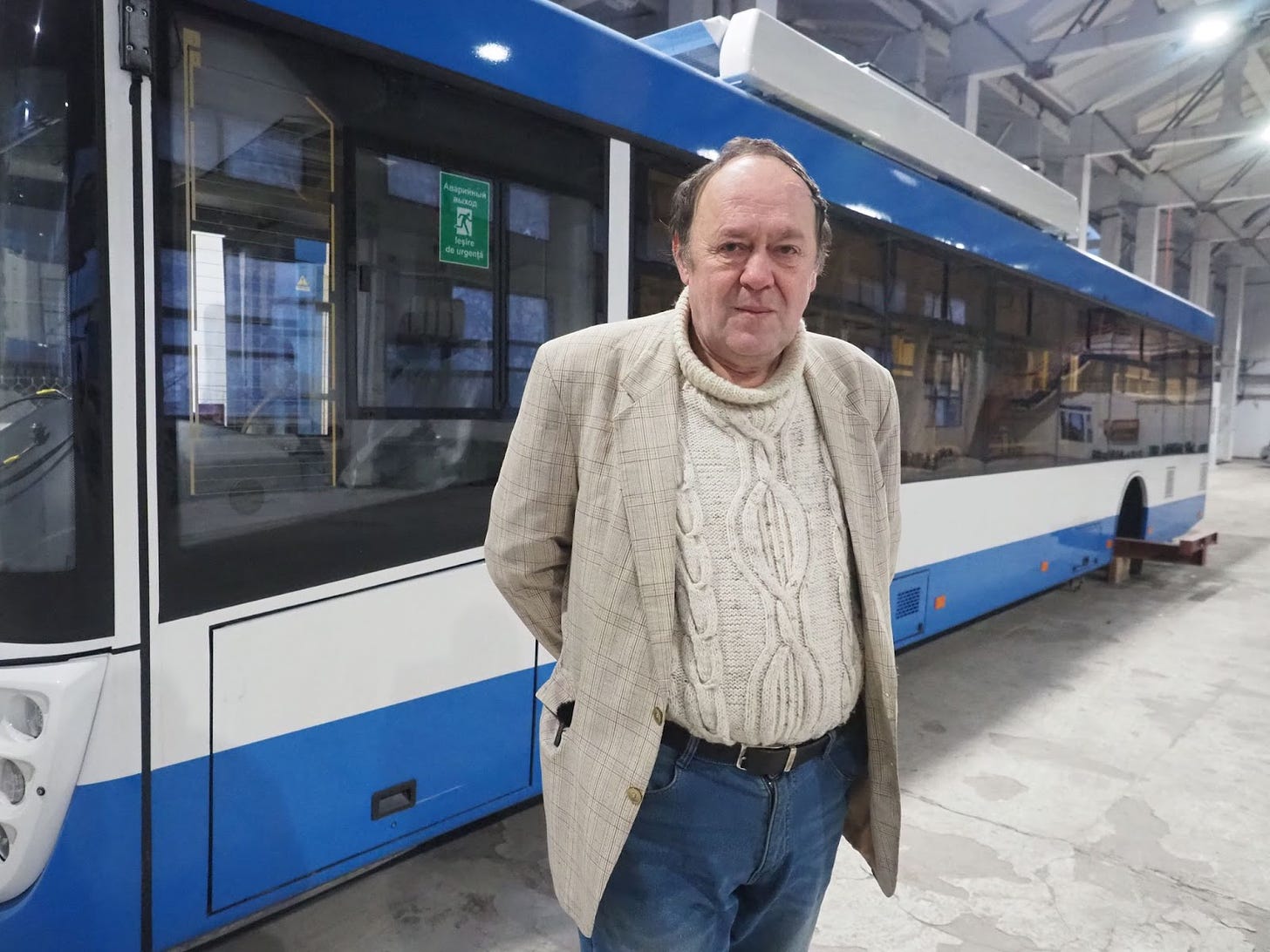
Informbusiness designed and built electronics to allow trolleybuses to run further with less energy. Their solution made Chisinau trolleybuses around 40 percent more efficient. Before the 2000s, one trolley consumed 3-3,50 kW/km. Informbusiness engineers were able to reduce it to approximately 2 kW/km.
Since then, the company has sold its gadgets to 170 cities worldwide - powering trolleybuses, trams, and trains. In December 2023, they opened Moldova's first trolleybus assembly factory. Informbusiness engineers created Moldova's very first electric bus. Their battery-powered trolleybuses now consume 0,75-0,85 kW/km.
Informbusiness engineers are particularly proud of the battery storage that accumulates energy for electric buses that could go up to 450 kilometers when charged. “This is a product that practically has no analog today, not even in the USA or Europe,” Eșanu said. “Because it helps the vehicle go that far.”
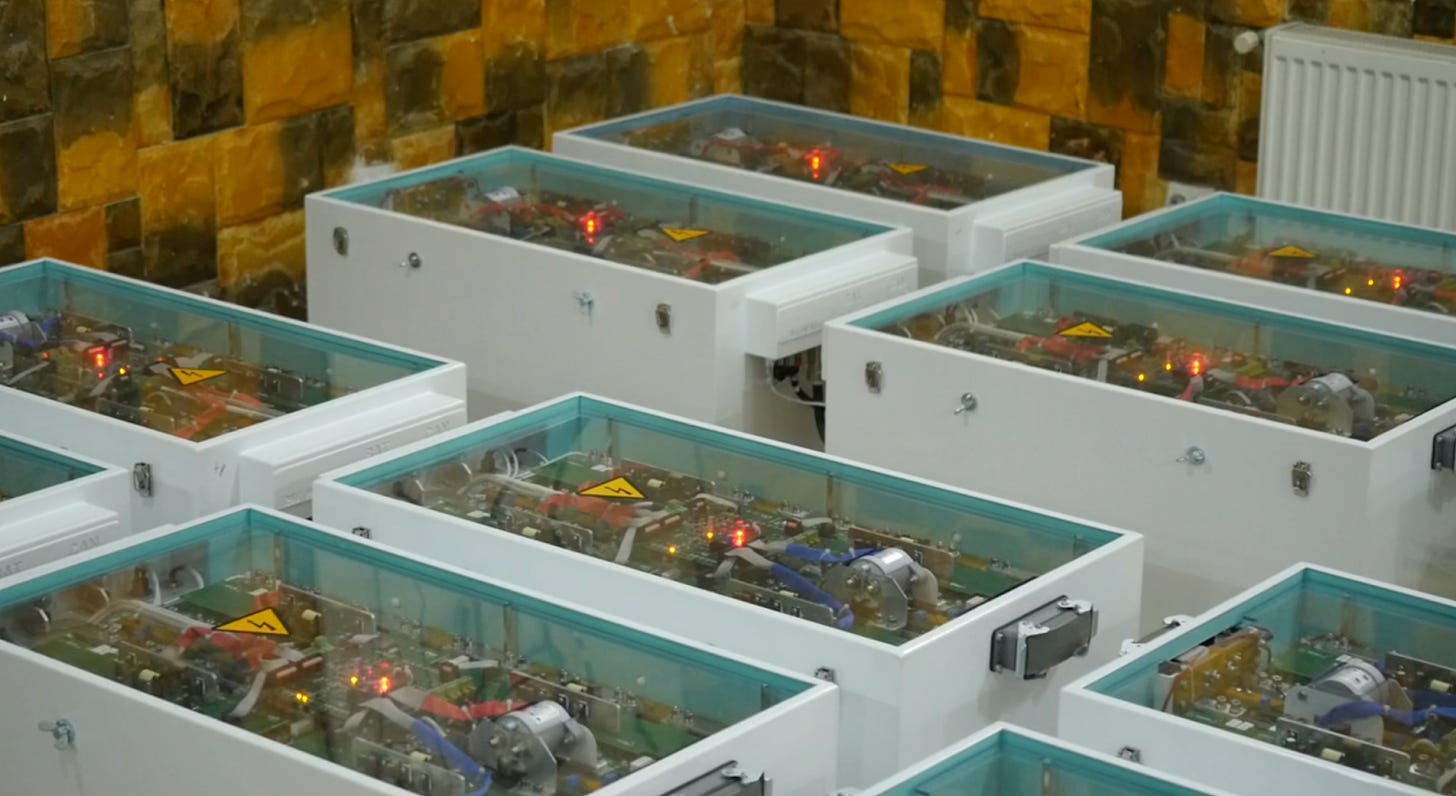
Informbusiness covers 18 percent of the electronics in Chisinau's transportation sector. “This gives us a large testing ground,” explained Alexandru Motroi, the technical director at InformBusiness. Being able to test their electronics in real-life situations is a rare advantage to have.
At the same time, the company is not only unknown globally; not even locals know much about it.

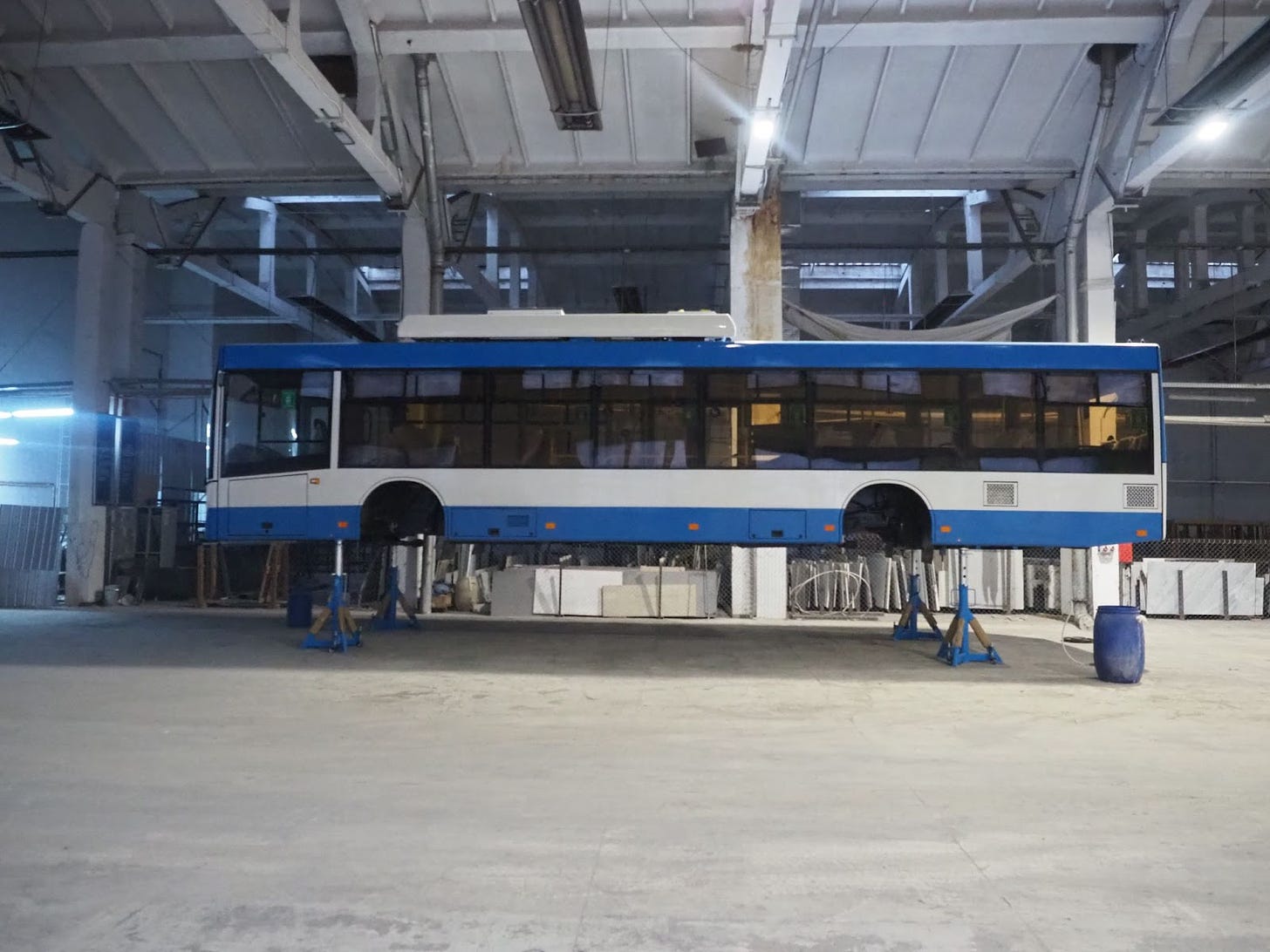
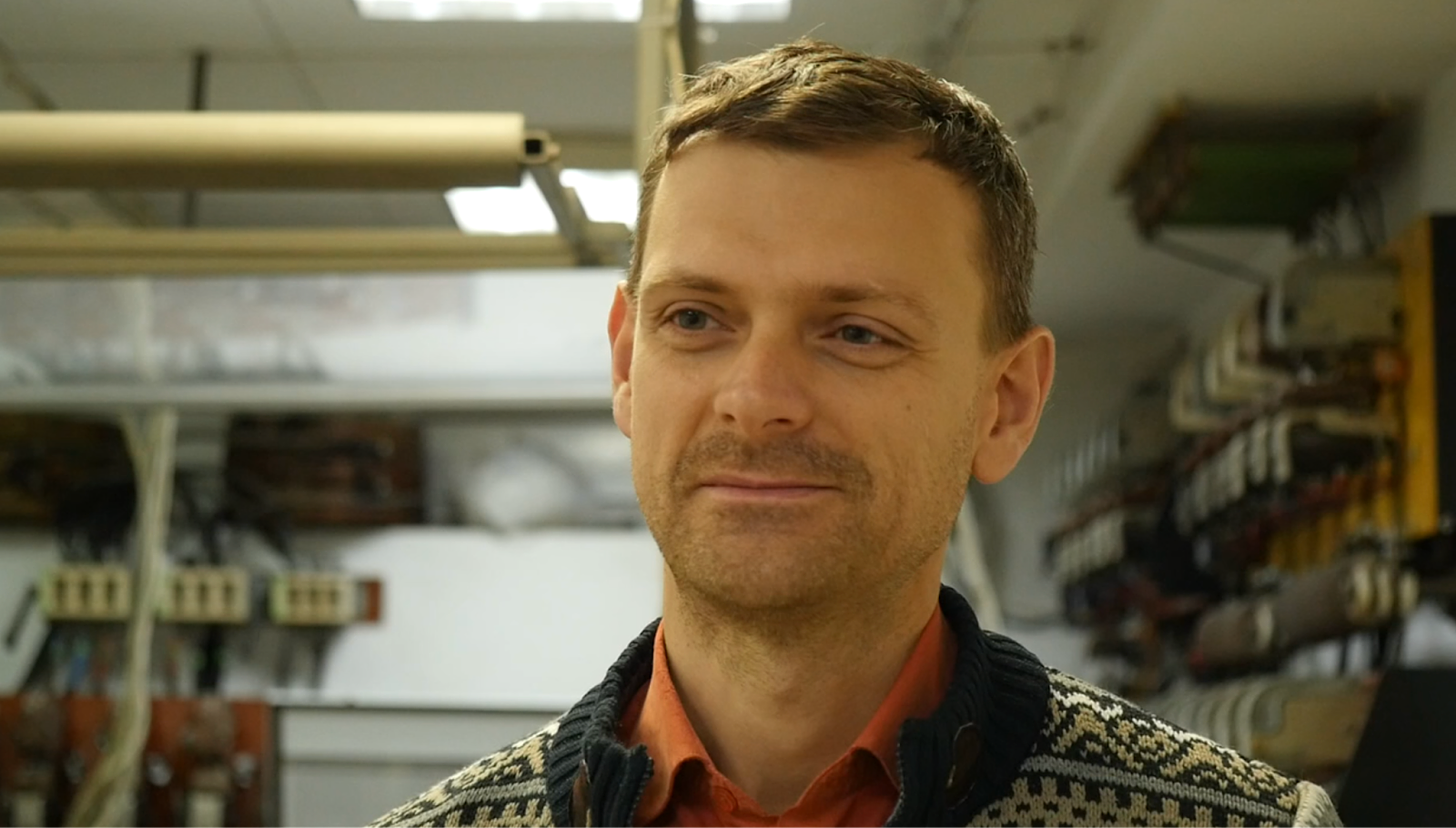
Making San Francisco trolleybuses safer
So we visited their factory by a busy street in a suburb of Chisinau. A hidden path led us underground. Here, elderly mechanics welded and polished general parts. Upstairs, engineers devise new inventions. Here, in the middle of the room, stands a switching device. It's an exact copy of the ones they export to San Francisco so that the trolleybuses on the other side of the world could run more smoothly. The engine is directly connected to the network in electric transport, explained Alexandru Motroi. When the trolleybus starts moving, it pulls the energy straight from the socket, making an abrupt movement. Informbusiness' gadget makes the transition smoother. Without this device, the passengers would fall every time a trolley bus stopped or started. The same equipment made by the same team is used in Chișinau, too, making trolleys safer and providing a smoother ride.
Eșanu and Motroi have never been to San Francisco themselves - their work has traveled the world much more than they have.

Trolleys are part of city life
Trolley buses are central to Chisinau's daily life. Most people still use them to move around. Though noisy, they are efficient and more ecological than diesel buses.
Ultimately, it’s the story of how the collapsing Soviet military complex ended up producing something much more worthwhile and helping people move around safely!






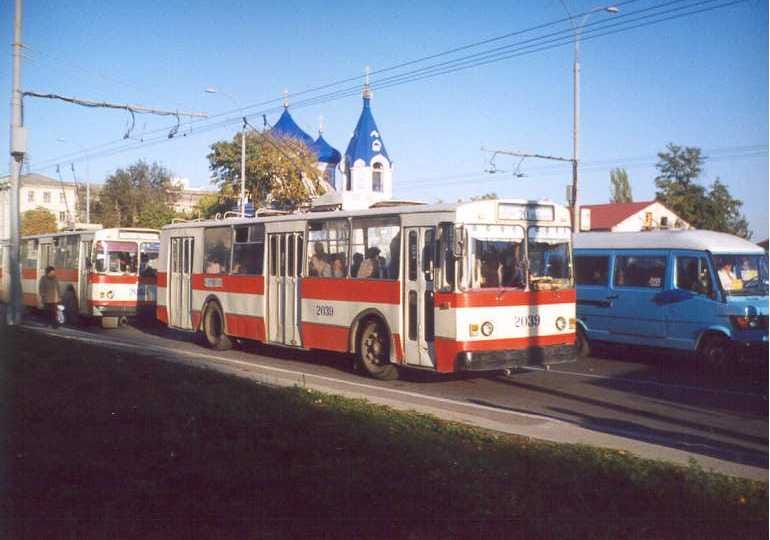



What a nice surprise. I look forward to seeing the advancement of this sector in the business economy add to Moldova's strengths.